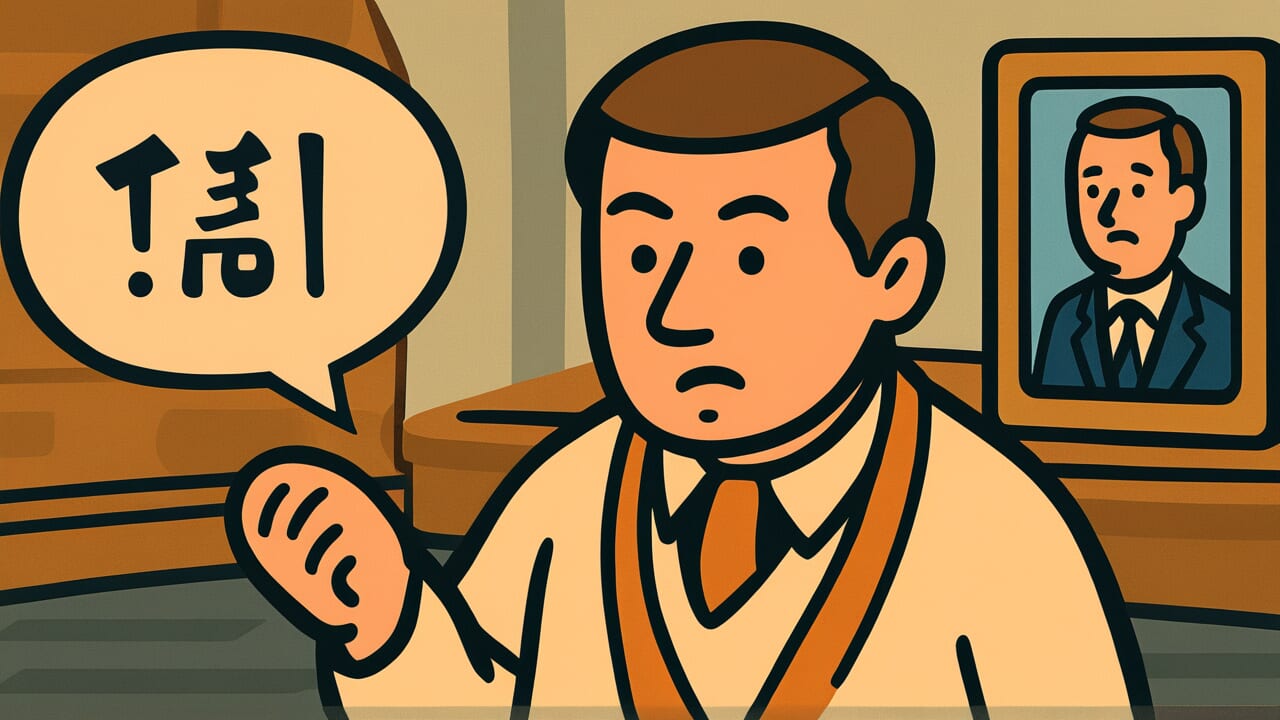How to Read “Wisdom does not blame foolishness”
Chi wa gu wo semazu
Meaning of “Wisdom does not blame foolishness”
This proverb means that truly wise people do not blame or criticize foolish people. People with abundant knowledge and experience understand that everyone has different levels of comprehension and grows at different speeds.
They do not harshly condemn others for their immaturity or mistakes. Instead, they have the generosity to warmly watch over each person as they grow at their own pace.
This proverb is used in educational settings, workplace training, and human relationships in general. It teaches the importance of treating others with tolerance rather than emotionally attacking them for their mistakes or lack of understanding.
True wise people never forget that they too were once immature. They can put themselves in the other person’s shoes.
Even in modern society, this spirit is highly valued as an important measure of leadership and human maturity.
Origin and Etymology
There are various theories about the exact origin of this proverb. However, it is believed to be influenced by ancient Chinese philosophy, particularly Confucianism and Taoism.
The contrasting concepts of “wisdom” and “foolishness” appear frequently in ancient Chinese philosophical texts. They formed a basic framework for discussing human qualities and virtues.
Behind this proverb lies a deep question about what a true wise person is. It’s not just about having abundant knowledge or quick thinking.
Real wisdom means having understanding and tolerance toward others. It’s easy to blame foolish people, but that only shows off your superiority. It doesn’t help the other person grow.
After being introduced to Japan, this proverb likely gained uniquely Japanese interpretations. It became connected with bushido and Zen philosophy.
During the Edo period, it was often quoted in moral instruction books. It was taught as guidance for leaders and elders. Those in positions to guide others need the capacity to watch over and support growth, not blame immaturity.
This teaching has been widely accepted throughout Japanese history.
Usage Examples
- He teaches his juniors carefully without yelling at their mistakes—truly “Wisdom does not blame foolishness”
- They say “Wisdom does not blame foolishness,” but I reflected that I still have much training to do myself
Universal Wisdom
Differences in knowledge and ability always exist in human society. This proverb has been passed down for hundreds of years because it brilliantly captures the essence of human growth and relationships.
Everyone has a tendency to feel superior when they find someone they perceive as inferior. The desire to point out others’ mistakes and prove your own correctness is rooted in human instinct.
However, this proverb teaches that giving in to such impulses is true foolishness.
Real wisdom lies not in the amount of knowledge, but in the depth of human understanding. Wise people know that everyone has different backgrounds and circumstances. They know growth takes time, and everyone learns through repeated failures.
That’s why they don’t waste time on the pointless act of blaming others.
Thinking even deeper, this proverb also speaks about human humility. Today’s wise person was once foolish. The knowledge and abilities you have now were gained through the help of many people and the gift of time.
Never forgetting this fact and recognizing your responsibility to nurture the next generation—this is the universal wisdom that sustains human society.
When AI Hears This
In information theory, communication success is determined not by the sender’s ability, but by the channel capacity and the receiver’s decoding ability.
For example, if you send 100 bits of information through a channel that can only process 10 bits per second, 90 bits will inevitably be lost. This is a physical constraint that cannot be changed no matter how excellent the sender is.
According to Shannon’s information theory, information transmission efficiency is inversely proportional to the receiver’s entropy—their level of uncertainty. People with less knowledge or experience have limited options for interpreting the same message.
Advanced information gets processed as random noise. In other words, without an appropriate dictionary on the receiving end, even the most precise encrypted message has no meaning.
What’s important here is that wise senders assess the other party’s channel capacity and automatically adjust to the transmittable information volume. This isn’t about not blaming—it’s a rational decision not to waste energy on communication that won’t get through.
In communications engineering, there’s a technology called adaptive modulation that automatically reduces information density in channels with high error rates. Human wise people intuitively perform the same optimization.
In other words, this proverb applies the basic principle of information theory to human relationships. It recognizes the fundamental asymmetry in information transmission and avoids wasteful communication.
Lessons for Today
Modern society has become an environment where we can easily criticize others’ failures and ignorance through social media. However, this proverb urges us to stop and think.
Blaming others only gives you temporary feelings of superiority. It doesn’t lead to real problem-solving or relationship-building.
At work and at home, we interact daily with people less experienced or slower to understand than ourselves. At those moments, will you get frustrated and blame them? Or will you believe in their growth and watch over them?
That choice reveals your own capacity as a human being.
This proverb teaches us that true strength lies in tolerance. Accept the other person’s immaturity and give appropriate advice at the right time.
Such an attitude helps people around you grow and builds trust. Most importantly, by maintaining this attitude, you yourself can grow into a truly wise person with humility and compassion.
Starting tomorrow, when you encounter someone’s failure, why not take a breath before blaming them?



Comments